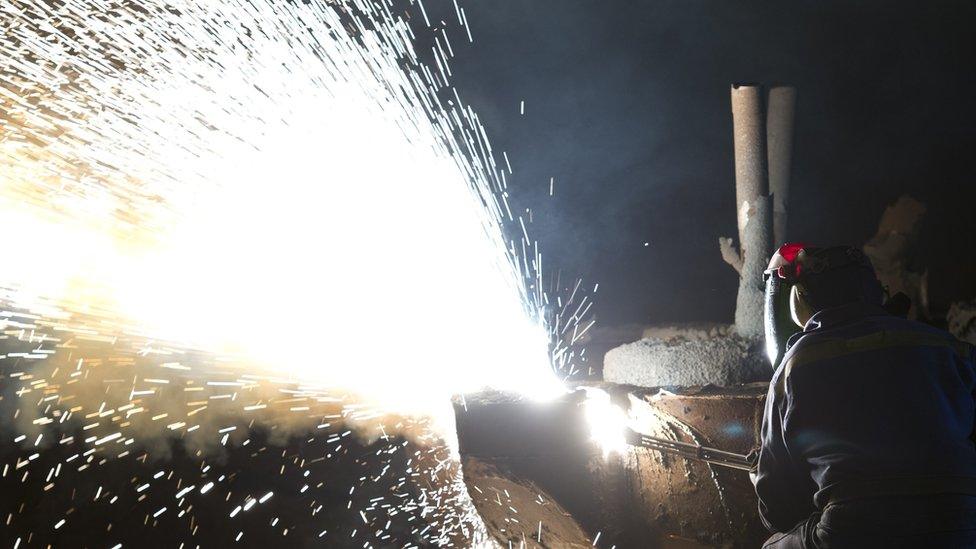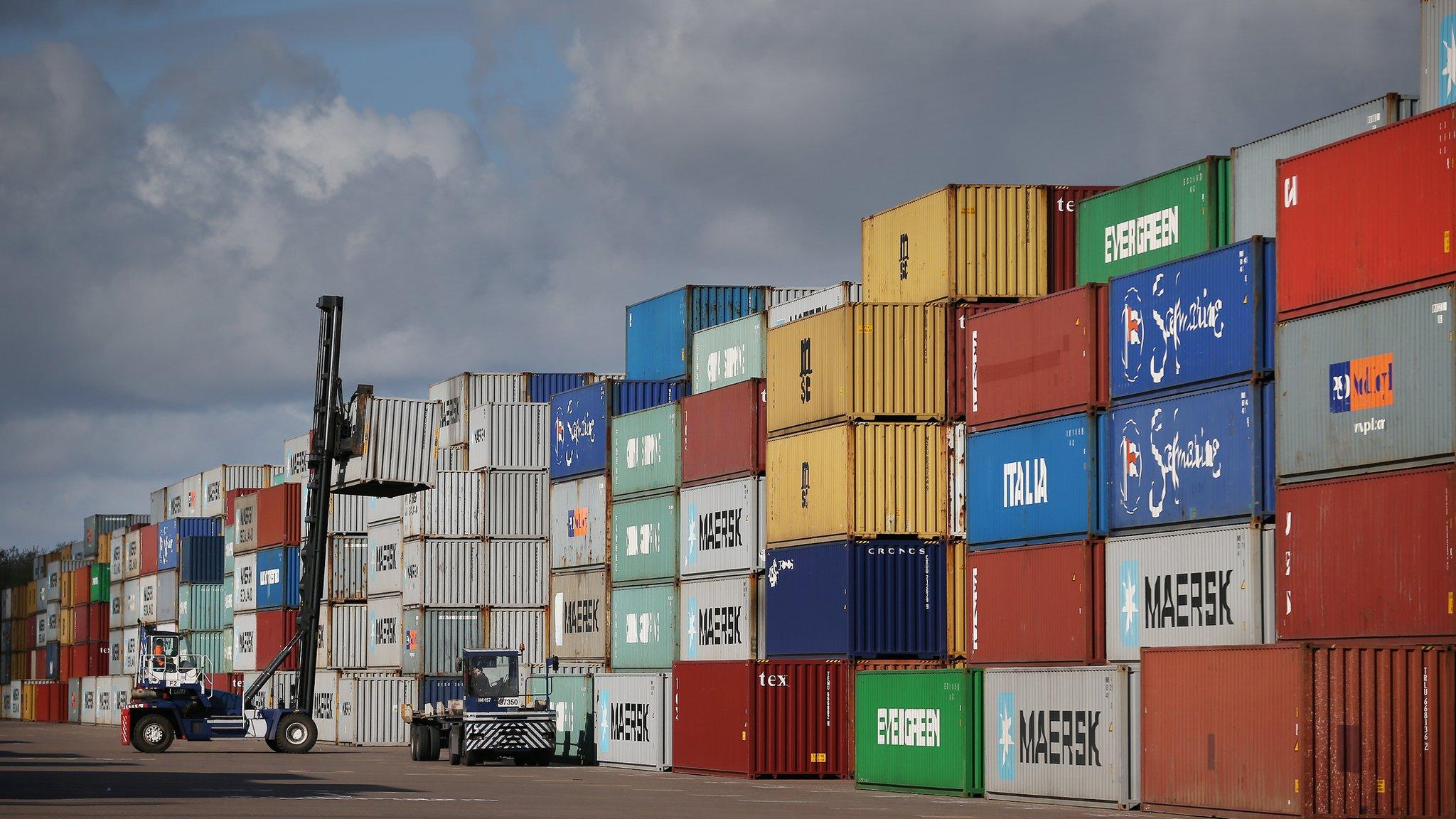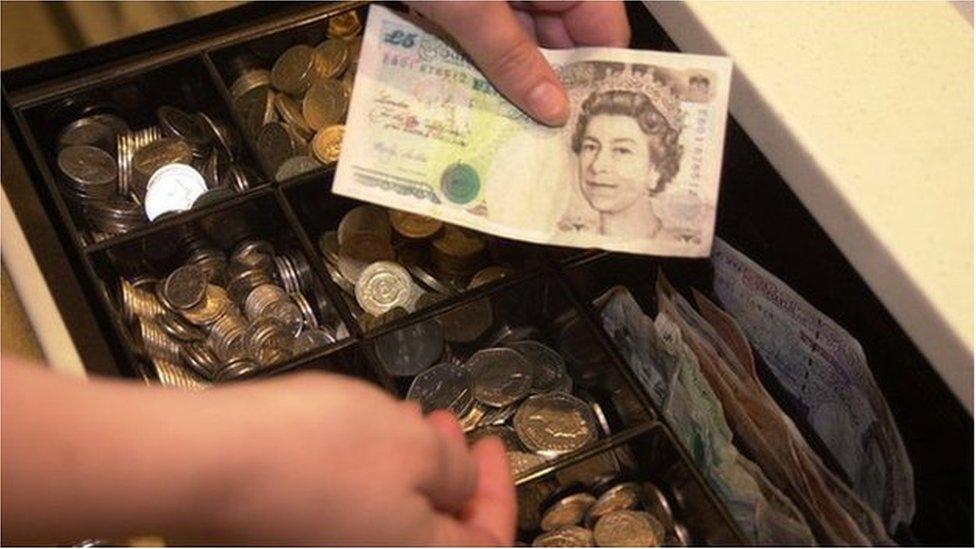Pound drops after UK industrial output falls in November
- Published

The pound has hit a five-and-half year low against the dollar after weak UK industrial production data.
At one point the pound traded at $1.4408, down a cent and a half, before recovering a little to trade at $1.4415.
Industrial output fell 0.7% in November from October - the sharpest fall since early 2013 according to figures from the Office for National Statistics., external
Unusually mild weather reduced electricity and gas consumption.
Manufacturing output shrank by 0.4% for a second month running, with a fall in pharmaceutical production having the biggest impact on total factory output.
'Dire performance'
Analysts warn the figures suggest manufacturing growth remains fragile, leaving Britain's recovery relying on the service sector and consumer spending.
"After a dire performance through much of 2015, November's industrial production figures suggest no change in the manufacturing sector's fortunes," said research group Capital Economics.
Compared with a year ago, industrial output was up 0.9%, the weakest annual growth since July.
Output from the manufacturing sector was down 1.2% from a year earlier.
Optimism scarce
Martin Beck, senior economic adviser to the EY Item Club, said the manufacturing sector remained a major cause for concern.
"Although the recent fall in the pound should provide some support to exporters, it is difficult to find many other reasons for optimism around the manufacturing sector," he said.
"With manufacturing on course for only modest output growth in Q4 and the other components of industrial production likely to have contracted, the economy is going to be almost wholly reliant on services to drive growth once again."
The Bank of England will publish its first monetary policy decision of the year on Thursday, but some analysts are not expecting the Bank to raise interest rates until the back end of 2016.
Mixed outlook
Last week, the Chancellor George Osborne warned the UK economy was facing "a dangerous cocktail of new threats" as a result of slow global growth and a drop in oil prices, which is a potential threat to the UK economy because of North Sea oil production.
On Tuesday the National Institute of Economic and Social Research (NIESR) - a respected think tank - forecast healthy growth of 0.6% for the final three months of last year.
NIESR expects annual growth of 2.2% for 2015.
It said that there is "little spare capacity in the economy".
The first official estimate of fourth quarter growth is due on 28 January.
- Published8 January 2016

- Published7 January 2016

- Published6 January 2016
